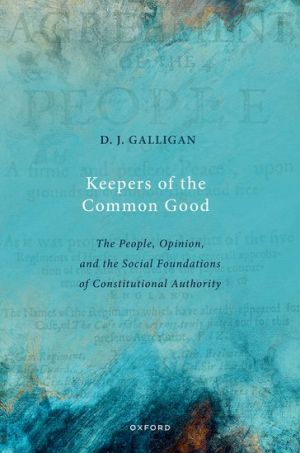
Drawing upon David Hume's observation that, on the one hand people readily submit to authority, while on the other hand, authority depends on their opinion, Keepers of the Common Good examines the intricate interplay between opinion and submission to authority. The author proposes and develops a novel social understanding of constitutional authority and the place of the people.
Analysing selected episodes of rebellion throughout history, the book traces the relationship between the people and the officials who govern. From the peasants of Gagliano who rejected the Italian state as illegitimate, to a wealth of rebellions in English history, the book builds on the social foundation earlier eloquently expressed as 'peoples precede nations'. In developing this idea, the author identifies, first, a lower register of constitutional discourse and ideas that emerge naturally within communities, and then, secondly, an upper register that gives meaning and justification to the prevailing constitutional order. By examining both registers, the book reveals their foundations, upon which an illuminating account of social relations between rulers and the ruled, officials, and the people is constructed.
The book then identifies three distinct forms of rule: princely rule, people ruling themselves, and rule by representatives. After evaluating each model's explanatory power in explaining how people experience and influence the constitutional field, a fourth model of rule is proposed: the keeper's model. This model is used to explain the place and practice of the people in modern constitutional systems, broadly considered democratic. Although the book is not a study of democracy, a fresh and realistic understanding emerges from the keeper's model of the place of the people within the constitutional field.